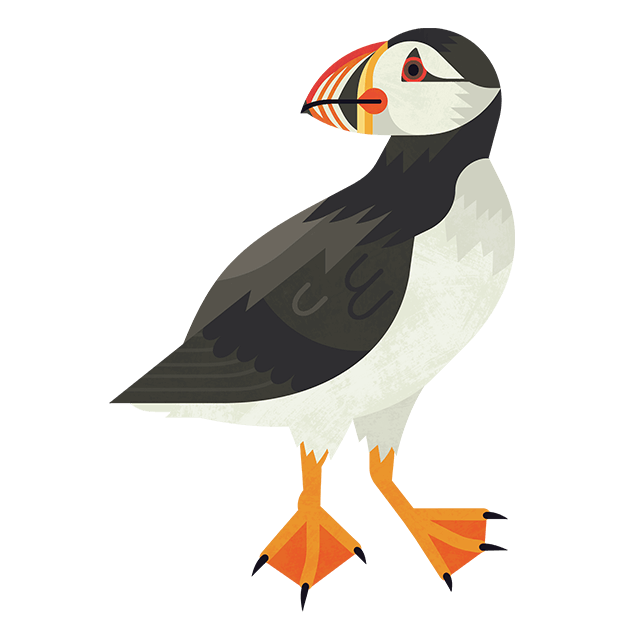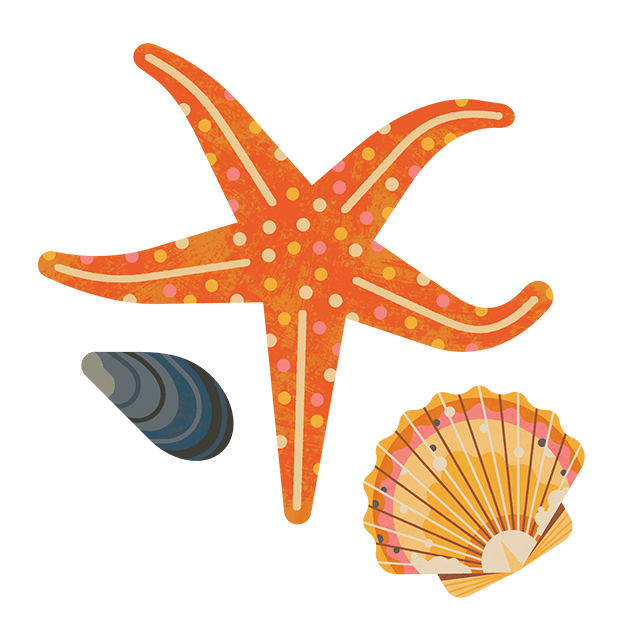
Inspired by Wild Isles?
The incredible scenes on the fifth episode of the BBC’s Wild Isles shows us the wonders of our seas at home, highlighting life beyond the shore and beneath the waves.
The episode features Shetland, Pembrokeshire, the Scilly Isles, and the West coast of Ireland, and the creatures that call our shores home. We've been working for a cleaner, better protected and healthier ocean for almost 40 years, and love that the episode shares some of our favourite creatures with us all.
Sandy Luk, our Chief Executive, said, "We know our Wild Isles can remain a haven for an incredible array of wildlife far into the future, but we all need to do our bit to help. You could join us on a litter pick, head into the sea for a Seasearch snorkel, spot jellyfish from the shore, or join us as a member. Together we can achieve our vision for healthy seas for people and planet."

Credit: Martin Stevens
Featured in this episode of Wild Isles are seals, one of the UK’s most-spotted marine mammals, but they are increasingly under threat from pollution.
We're campaigning for cleaner seas to protect animals like seals, which rely on the UK coast. By collecting data on beach litter with the help of volunteers across the UK, we push for laws like carrier bag charges, deposit return schemes and bans on avoidable single-use plastic products.
We're also calling to Stop Ocean Poison to prevent chemical pollution, which has been shown to affect marine mammals like seals, whales, dolphins and otters - species which feature on the show.
Seahorses, one of our most iconic marine creatures, are shown in a seagrass meadow in the Scilly Isles. The UK’s seagrass meadows are home to the two species of seahorse which live in UK waters - the spiny seahorse and the short snouted seahorse.
However, an estimated 92% of seagrass beds in the UK have been lost in the last century from pollution, disease and damage caused by people.
We work to protect, restore and conserve seagrass habitats through numerous collaborative projects, including replacing traditional, damaging mooring systems, campaigning for improvements to water quality, and protecting seagrass from human activity.

Credit: Georgie Bull
Sea slugs also feature in the episode - tiny marine-dwelling creatures which are found in waters all over the world, including our own.
From the depths of the open ocean to kelp forests and coral reefs, sea slugs can also be spotted with a keen eye in rockpools. Our Seasearch project brings volunteer divers and snorkellers a step closer to these creatures.
There is so much to discover right on our doorstep. Our volunteers have spotted rare sea slugs, new species of sea sponge and kept track of vital marine habitats. We hope this final episode of Wild Isles inspires people to join us and discover the huge array of incredible, colourful and charismatic wildlife that calls UK seas home.
Charlotte Bolton, Seasearch Co-ordinator
Volunteers survey the UK’s underwater world to more learn about marine life and collect information to help us track the health of the ocean.
Seasearch volunteer, Libby Keatley, spotted an unusual-looking sea slug on a dive at the Skerries off Portrush last summer. Further study proved it was an entirely new species. In honour of being the original spotter, the animal was named after Libby.

Credit: Libby Keatley
However, all these amazing species need protecting. Our designated Marine Protected Areas should be like underwater national parks and act as sanctuaries for rare or threatened animals, plants and seascapes.
But, despite being designated as protected, at present in some of these areas damaging activities, such as bottom towed fishing or developments for energy projects, can still legally happen which can damage habitats and exclude wildlife.
We're working to fully protect our marine parks - find out more about our work on Marine Protected Areas.
We hope this episode of Wild Isles has inspired you to visit the coast and take a closer look at our amazing wildlife. Wherever you live, all water leads to the ocean, and we can all do our bit to help.




